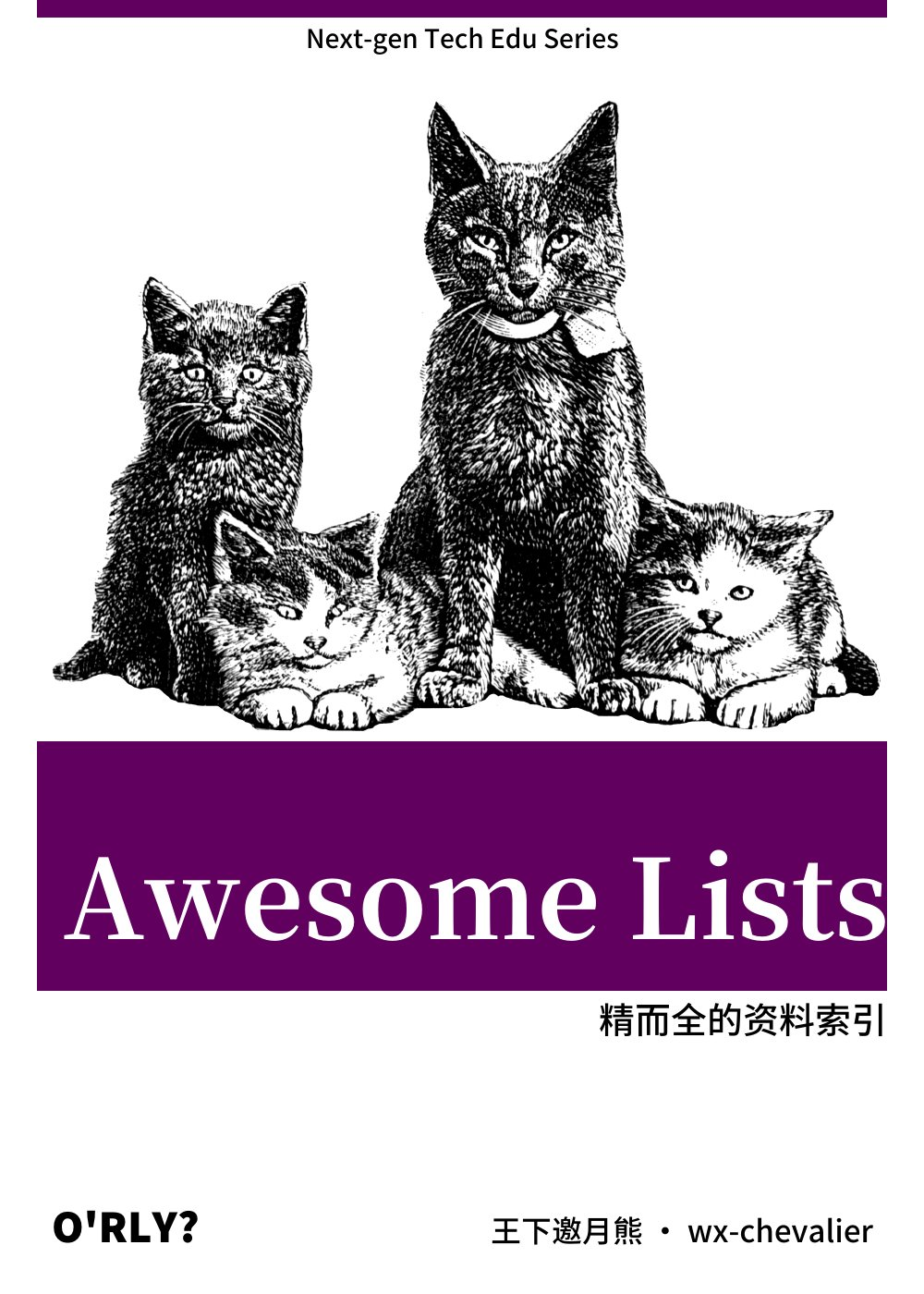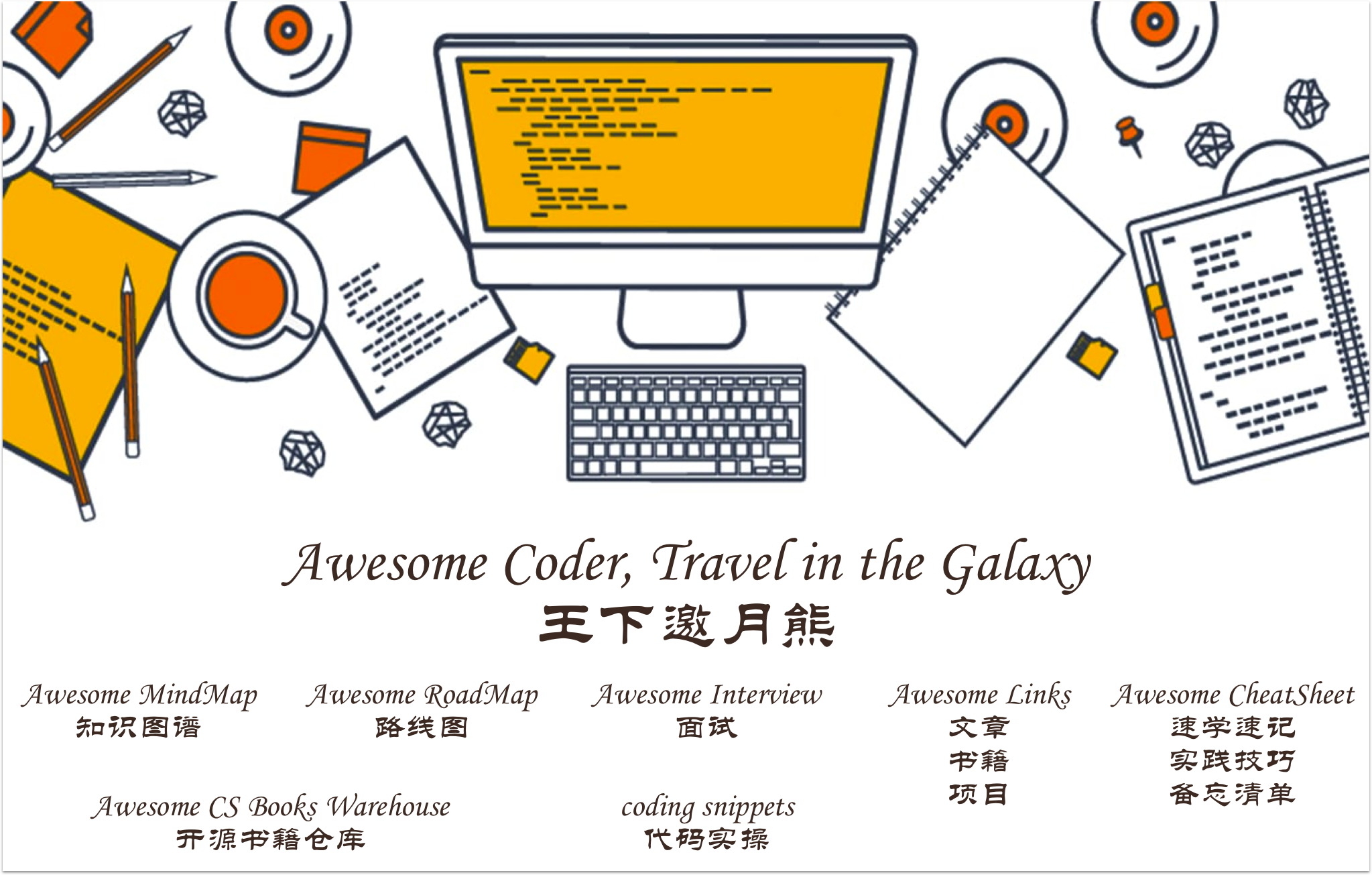
Awesome-Lists
:books: Guide to Galaxy, curated, worthy and up-to-date links/reading list for ITCS-Coding/Algorithm/SoftwareArchitecture/AI. :dizzy: ITCS-编程/算法/软件架构/人工智能等领域的文章/书籍/资料/项目链接精选,岁月沉淀的美好
Stars: 597
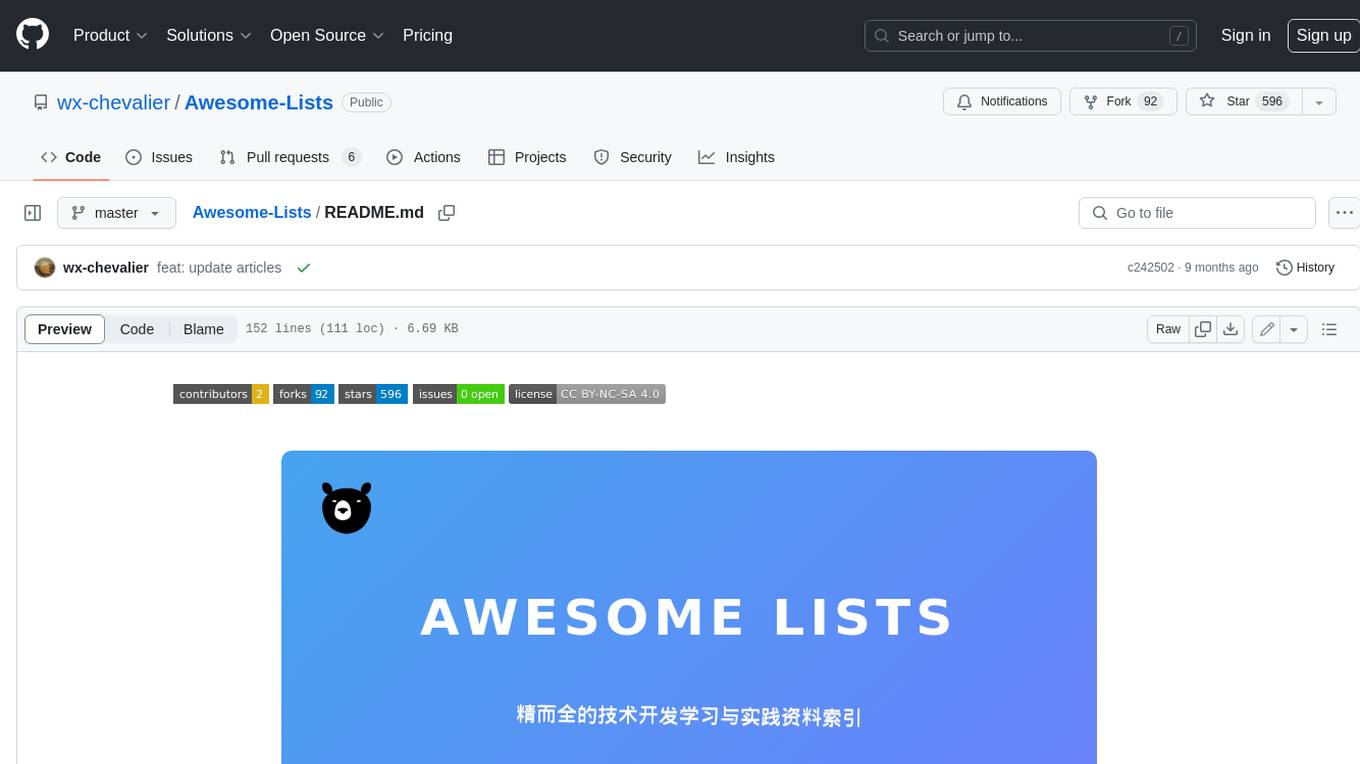
Awesome-Lists is a curated list of awesome lists across various domains of computer science and beyond, including programming languages, web development, data science, and more. It provides a comprehensive index of articles, books, courses, open source projects, and other resources. The lists are organized by topic and subtopic, making it easy to find the information you need. Awesome-Lists is a valuable resource for anyone looking to learn more about a particular topic or to stay up-to-date on the latest developments in the field.
README:
Awesome-Lists 是横跨了编程语言与理论、Web 与大前端、服务端开发与基础架构、云计算与大数据、数据科学与人工智能、产品设计等多个领域的,包括了文章、书籍、课程、案例、开源项目等多种类型的精选资料索引(在各个系列的文章末尾会附上一些细分领域关联性较强的参考资料列表)。Awesome-Lists 记录了笔者在日常阅读、学习与实践中发掘的优秀的资料,其按照知识图谱中定义的各个领域的知识体系分门别类地存放;笔者会不断更新其中链接,去芜存菁,去重留一,希望为同仁提供优秀的、有价值的、尽可能精简的资料索引。
梭罗在《瓦尔登湖》中写道:知道自己知道什么,也知道自己不知道什么,这就是真正的知识。知我所知是对于自己能力的正确认识,知我所不知则能为自己未来的路明确些方向。站在巨人的肩膀上窥探大道三千,才能触类旁通,他山之石,可以攻玉。相较于其他很多的 Awesome-* 项目,笔者认为 AwesomeList 更为纯粹,其中收录的文章链接都是笔者阅读、筛选之后,按照 IT 技术图谱与知识架构归档留存。在碎片化学习的同时,也能够建立系统化的知识。
本系列文章目录层次如下:
-
{Something}-List.md - 该文件包含或者分割为以下内容:
-
Overview
- Ecosystem
- Learning Path & Roadmap & Guideline
- CheatSheet
-
Resource
- Book
- Collection
- Course
- Series
- Site
- Tutorial
-
-
{Something}-OpenSource-List.md
- Showcase
- Dev Tools
- Framework
- ...
-
@Deprecated {Something}-Syntax-List.md - 该文件包含或者分割为以下内容:
- Variable & Expression
- Control flow & Error Handler
- Function & Functional Programming
- Class & Object
- MetaProgramming
-
@Deprecated {Something}-DataStructure-List.md - 该文件包含或者分割为以下内容:
- Basic Type
- Indexed Collection
- Keyed Collection
-
@Deprecated {Something}-Functionality-List.md - 该文件包含或者分割为以下内容:
- Storage
- Network
- System / Process
-
@Deprecated {Something}-DevOps-List.md - 该文件包含或者分割为以下内容:
- Builder, Task runner, Bundler, dependence management
- Debug
- Test, unit test, integration test, e2e test
- Architecture, module system, State management,
- StyleGuide, coding standards for source code in the JavaScript programming language.
-
@Deprecated {Something}-Production-List.md - 该文件包含或者分割为以下内容:
- Performance Optimization / Tunning
- Release / Deploy
- Accessibility / Monitor
- RealTime
- I18n
-
@Deprecated {Something}-Internals-List.md Inner mechanism under the hood, Core/Compiler/Engine
本系列文章索引类别约定如下:
- #Article#:单篇文章,也是默认的引用类型
- #Slide#:幻灯片
- #Series#:系列文章
- #Book# 📚:书籍
- #Course# 🎥:视频教程
- #Collection# 🗃️:资源集锦
- #Code#
: 开源的项目或者框架、库。
- #Scratch#: 从零构建某些系统
- #Tool#: 工具
- #Paper#
- #Tutorial#
目前,在知识体系中会存在多层构建的问题,对于非 #Article#、#Series# 类遵循的归纳原则就是:仅放置在最顶层与最底层,不放在中间层。
# 统计所有的有效链接数
$ wc -l **/*.md | grep -E -v "(Weekly|total|README)" | awk '{s+=$1} END {printf "%.0f", s}'- The book of secret knowledge: A collection of inspiring lists, manuals, cheatsheets, blogs, hacks, one-liners, cli/web tools and more.
笔者所有文章遵循 知识共享 署名 - 非商业性使用 - 禁止演绎 4.0 国际许可协议,欢迎转载,尊重版权。您还可以前往 NGTE Books 主页浏览包含知识体系、编程语言、软件工程、模式与架构、Web 与大前端、服务端开发实践与工程架构、分布式基础架构、人工智能与深度学习、产品运营与创业等多类目的书籍列表:
For Tasks:
Click tags to check more tools for each tasksFor Jobs:
Alternative AI tools for Awesome-Lists
Similar Open Source Tools

Awesome-Lists
Awesome-Lists is a curated list of awesome lists across various domains of computer science and beyond, including programming languages, web development, data science, and more. It provides a comprehensive index of articles, books, courses, open source projects, and other resources. The lists are organized by topic and subtopic, making it easy to find the information you need. Awesome-Lists is a valuable resource for anyone looking to learn more about a particular topic or to stay up-to-date on the latest developments in the field.
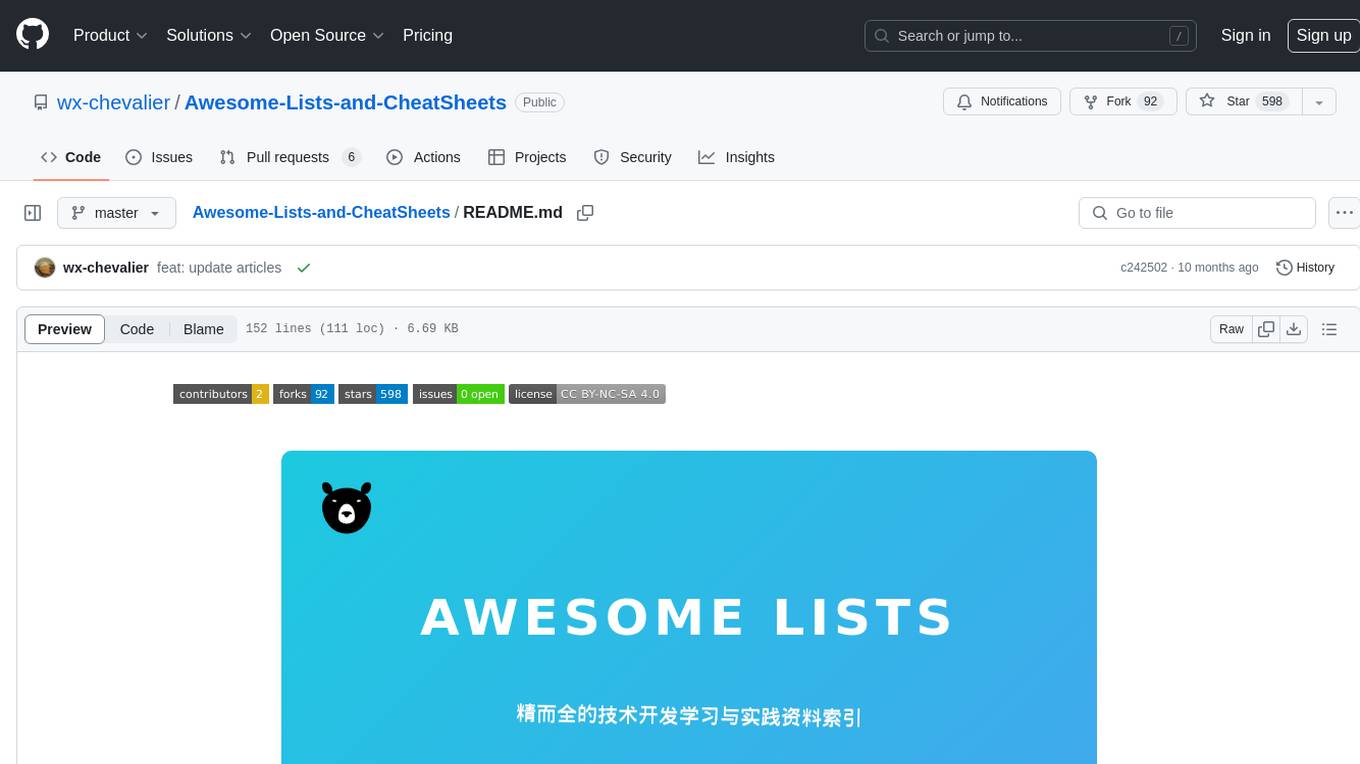
Awesome-Lists-and-CheatSheets
Awesome-Lists is a curated index of selected resources spanning various fields including programming languages and theories, web and frontend development, server-side development and infrastructure, cloud computing and big data, data science and artificial intelligence, product design, etc. It includes articles, books, courses, examples, open-source projects, and more. The repository categorizes resources according to the knowledge system of different domains, aiming to provide valuable and concise material indexes for readers. Users can explore and learn from a wide range of high-quality resources in a systematic way.
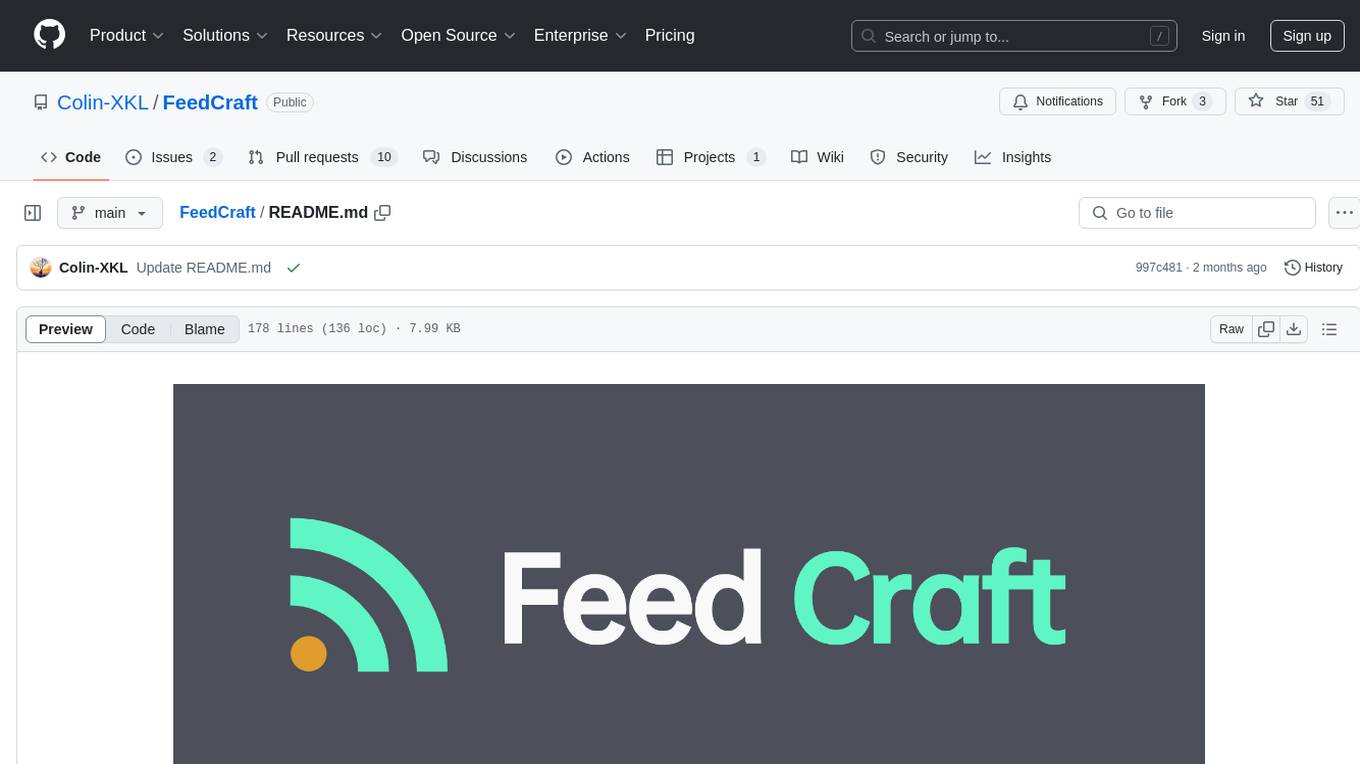
FeedCraft
FeedCraft is a powerful tool to process your rss feeds as a middleware. Use it to translate your feed, extract fulltext, emulate browser to render js-heavy page, use llm such as google gemini to generate brief for your rss article, use natural language to filter your rss feed, and more! It is an open-source tool that can be self-deployed and used with any RSS reader. It supports AI-powered processing using Open AI compatible LLMs, custom prompt, saving rules to apply to different RSS sources, portable mode for on-the-go usage, and dock mode for advanced customization of RSS sources and processing parameters.
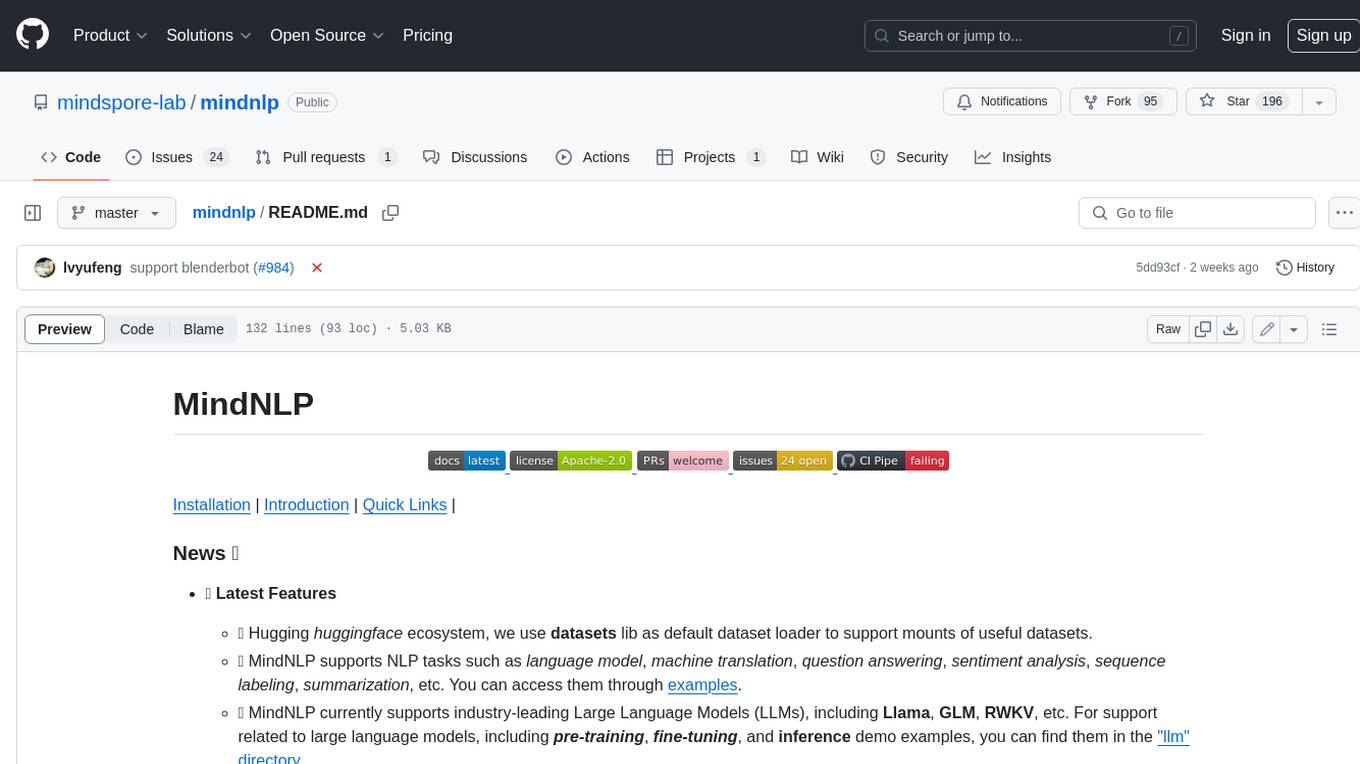
mindnlp
MindNLP is an open-source NLP library based on MindSpore. It provides a platform for solving natural language processing tasks, containing many common approaches in NLP. It can help researchers and developers to construct and train models more conveniently and rapidly. Key features of MindNLP include: * Comprehensive data processing: Several classical NLP datasets are packaged into a friendly module for easy use, such as Multi30k, SQuAD, CoNLL, etc. * Friendly NLP model toolset: MindNLP provides various configurable components. It is friendly to customize models using MindNLP. * Easy-to-use engine: MindNLP simplified complicated training process in MindSpore. It supports Trainer and Evaluator interfaces to train and evaluate models easily. MindNLP supports a wide range of NLP tasks, including: * Language modeling * Machine translation * Question answering * Sentiment analysis * Sequence labeling * Summarization MindNLP also supports industry-leading Large Language Models (LLMs), including Llama, GLM, RWKV, etc. For support related to large language models, including pre-training, fine-tuning, and inference demo examples, you can find them in the "llm" directory. To install MindNLP, you can either install it from Pypi, download the daily build wheel, or install it from source. The installation instructions are provided in the documentation. MindNLP is released under the Apache 2.0 license. If you find this project useful in your research, please consider citing the following paper: @misc{mindnlp2022, title={{MindNLP}: a MindSpore NLP library}, author={MindNLP Contributors}, howpublished = {\url{https://github.com/mindlab-ai/mindnlp}}, year={2022} }
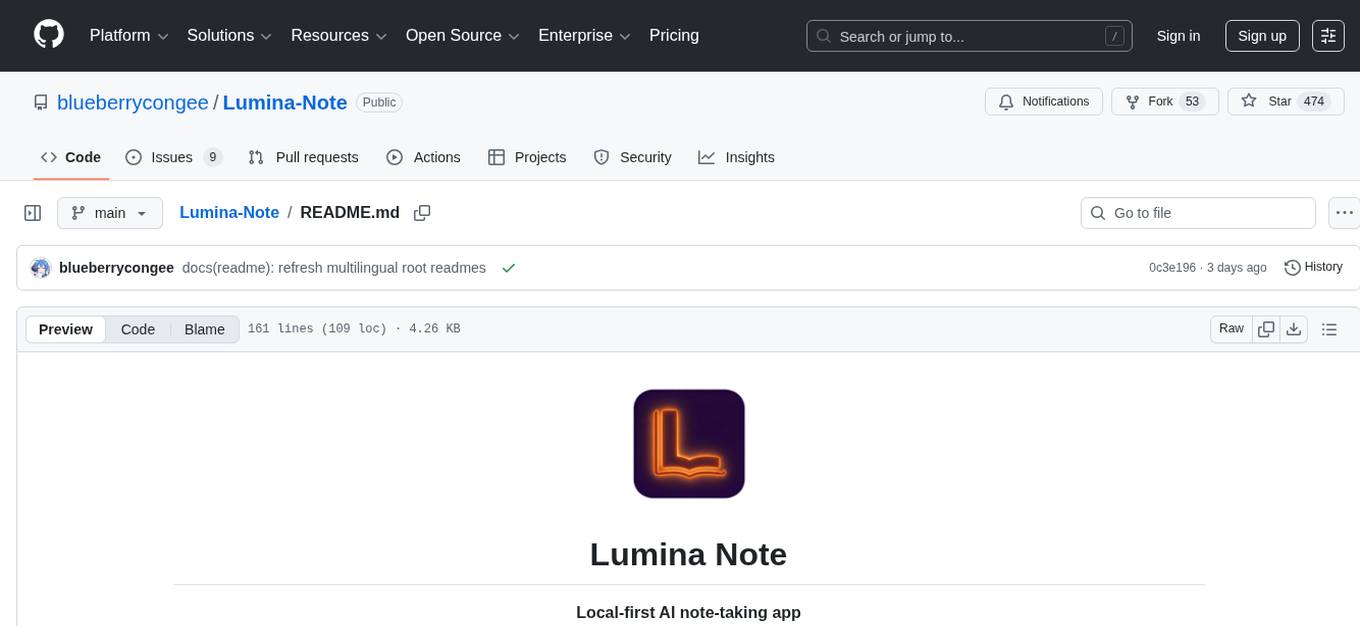
Lumina-Note
Lumina Note is a local-first AI note-taking app designed to help users write, connect, and evolve knowledge with AI capabilities while ensuring data ownership. It offers a knowledge-centered workflow with features like Markdown editor, WikiLinks, and graph view. The app includes AI workspace modes such as Chat, Agent, Deep Research, and Codex, along with support for multiple model providers. Users can benefit from bidirectional links, LaTeX support, graph visualization, PDF reader with annotations, real-time voice input, and plugin ecosystem for extended functionalities. Lumina Note is built on Tauri v2 framework with a tech stack including React 18, TypeScript, Tailwind CSS, and SQLite for vector storage.
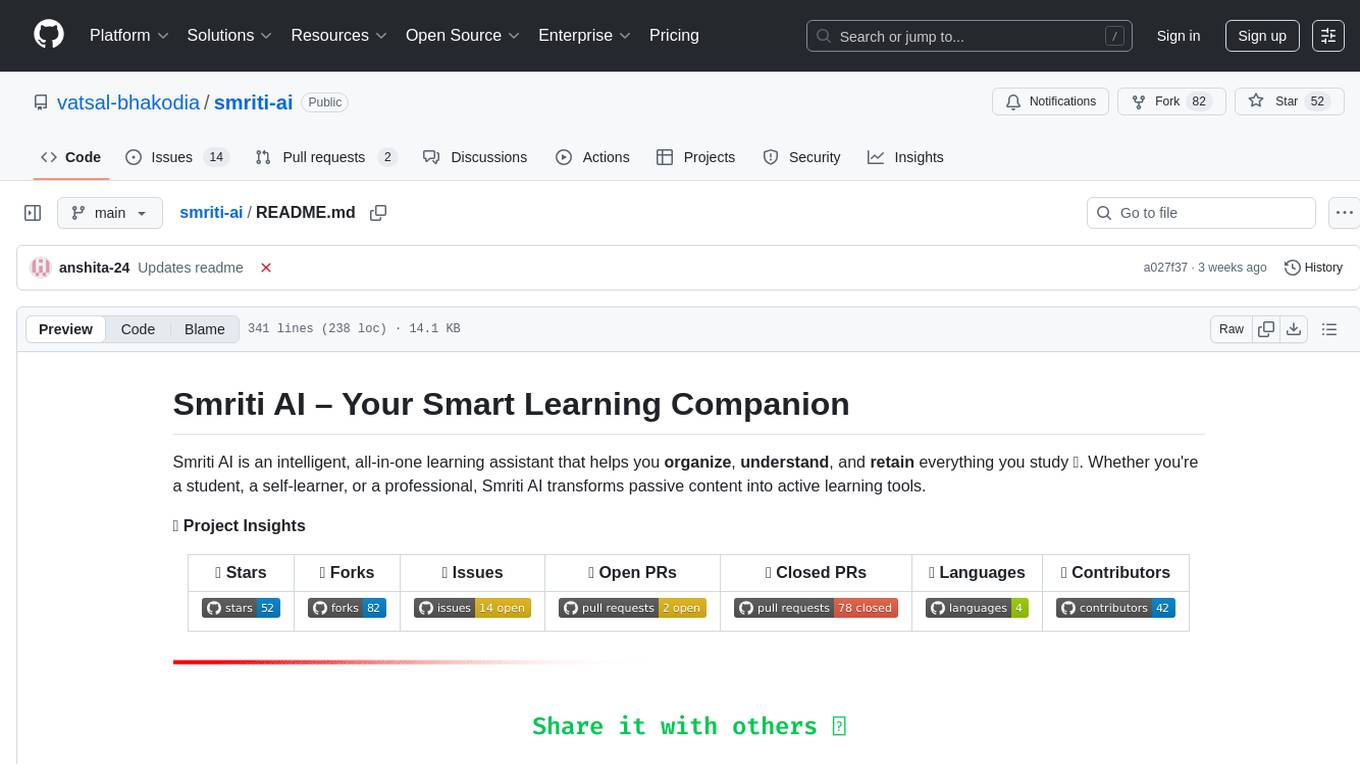
smriti-ai
Smriti AI is an intelligent learning assistant that helps users organize, understand, and retain study materials. It transforms passive content into active learning tools by capturing resources, converting them into summaries and quizzes, providing spaced revision with reminders, tracking progress, and offering a multimodal interface. Suitable for students, self-learners, professionals, educators, and coaching institutes.
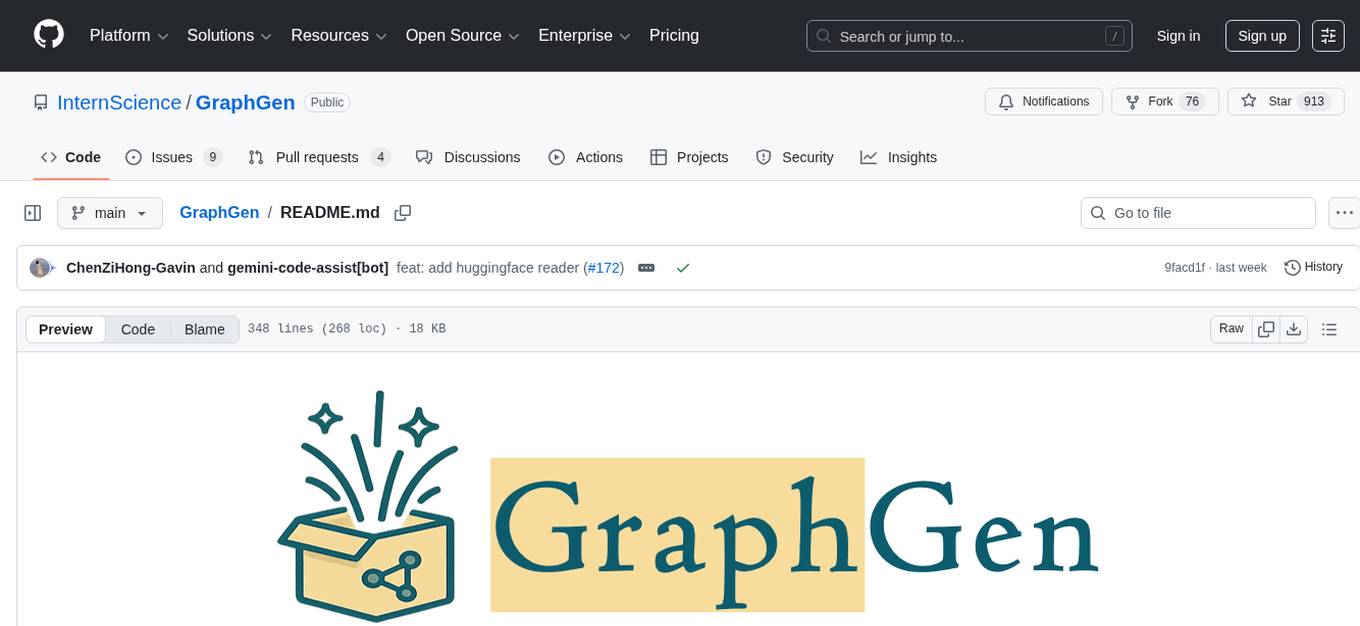
GraphGen
GraphGen is a framework for synthetic data generation guided by knowledge graphs. It enhances supervised fine-tuning for large language models (LLMs) by generating synthetic data based on a fine-grained knowledge graph. The tool identifies knowledge gaps in LLMs, prioritizes generating QA pairs targeting high-value knowledge, incorporates multi-hop neighborhood sampling, and employs style-controlled generation to diversify QA data. Users can use LLaMA-Factory and xtuner for fine-tuning LLMs after data generation.
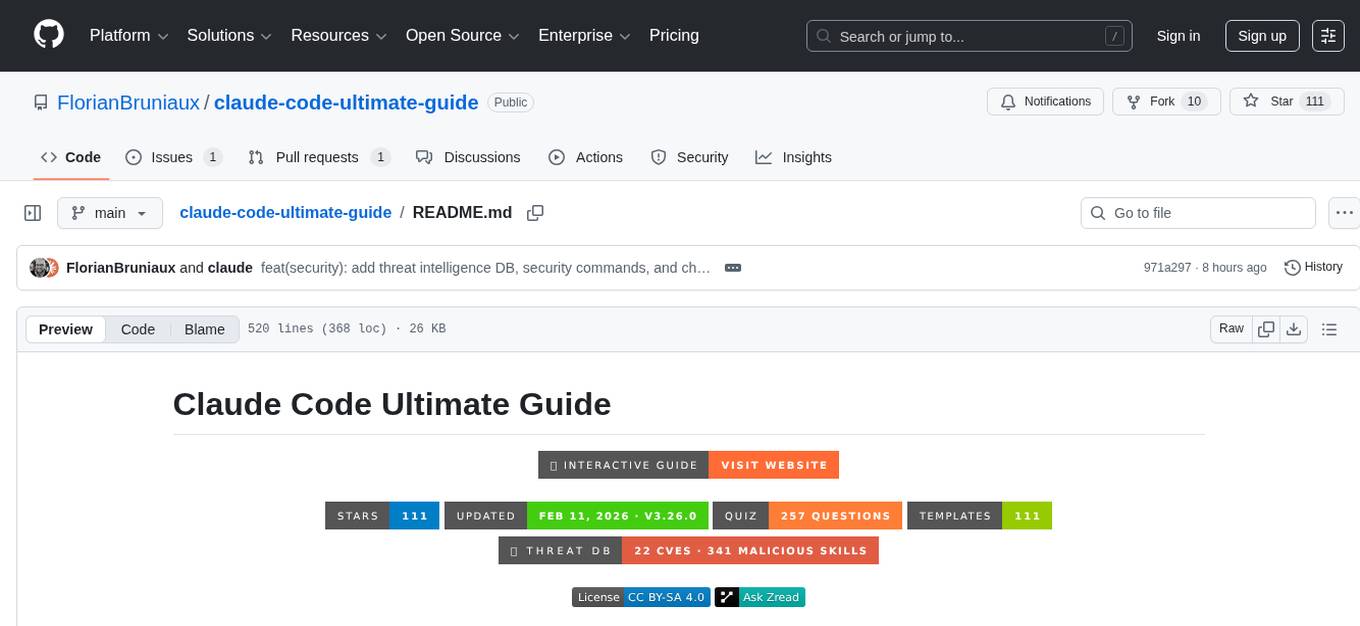
claude-code-ultimate-guide
The Claude Code Ultimate Guide is an exhaustive documentation resource that takes users from beginner to power user in using Claude Code. It includes production-ready templates, workflow guides, a quiz, and a cheatsheet for daily use. The guide covers educational depth, methodologies, and practical examples to help users understand concepts and workflows. It also provides interactive onboarding, a repository structure overview, and learning paths for different user levels. The guide is regularly updated and offers a unique 257-question quiz for comprehensive assessment. Users can also find information on agent teams coverage, methodologies, annotated templates, resource evaluations, and learning paths for different roles like junior developer, senior developer, power user, and product manager/devops/designer.
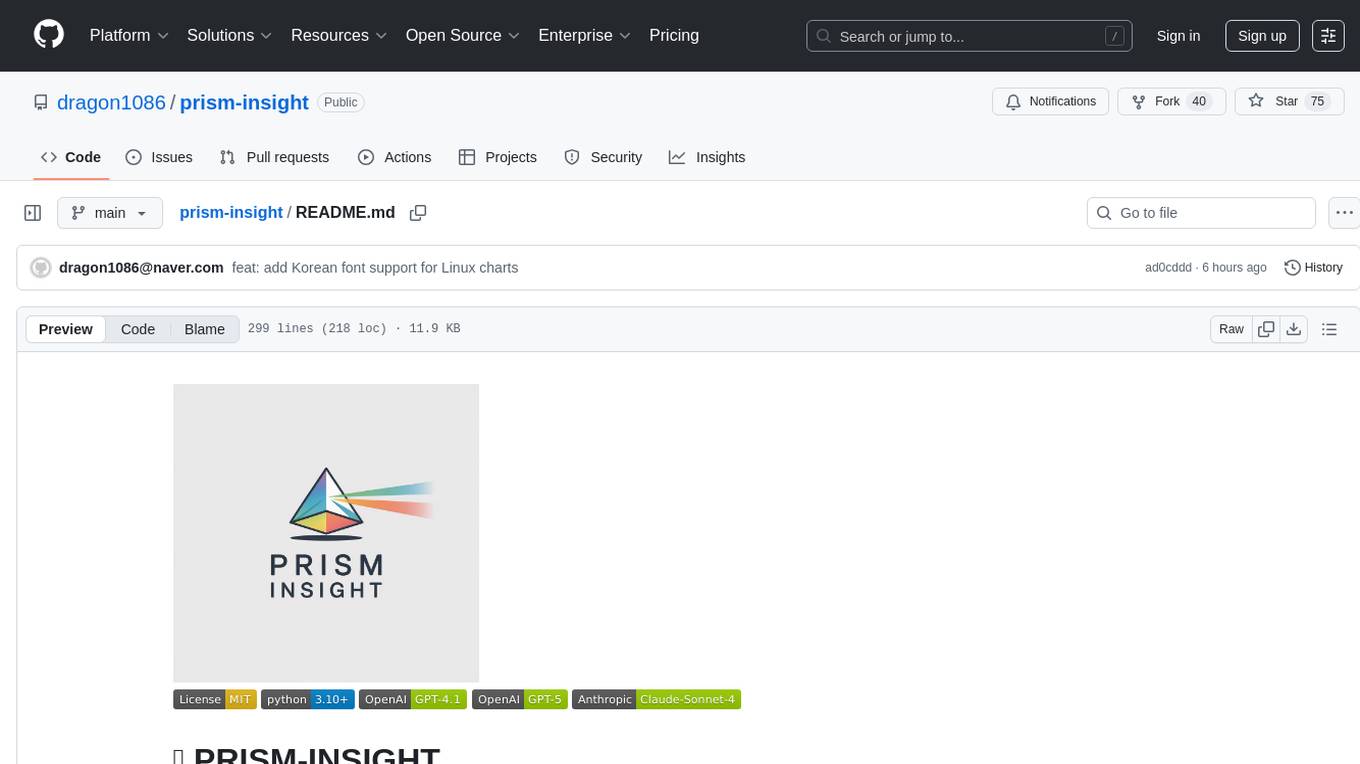
prism-insight
PRISM-INSIGHT is a comprehensive stock analysis and trading simulation system based on AI agents. It automatically captures daily surging stocks via Telegram channel, generates expert-level analyst reports, and performs trading simulations. The system utilizes OpenAI GPT-4.1 for in-depth stock analysis and GPT-5 for investment strategy simulation. It also interacts with users via Anthropic Claude for Telegram conversations. The system architecture includes AI analysis agents, stock tracking, PDF conversion, and Telegram bot functionalities. Users can customize criteria for identifying surging stocks, modify AI prompts, and adjust chart styles. The project is open-source under the MIT license, and all investment decisions based on the analysis are the responsibility of the user.
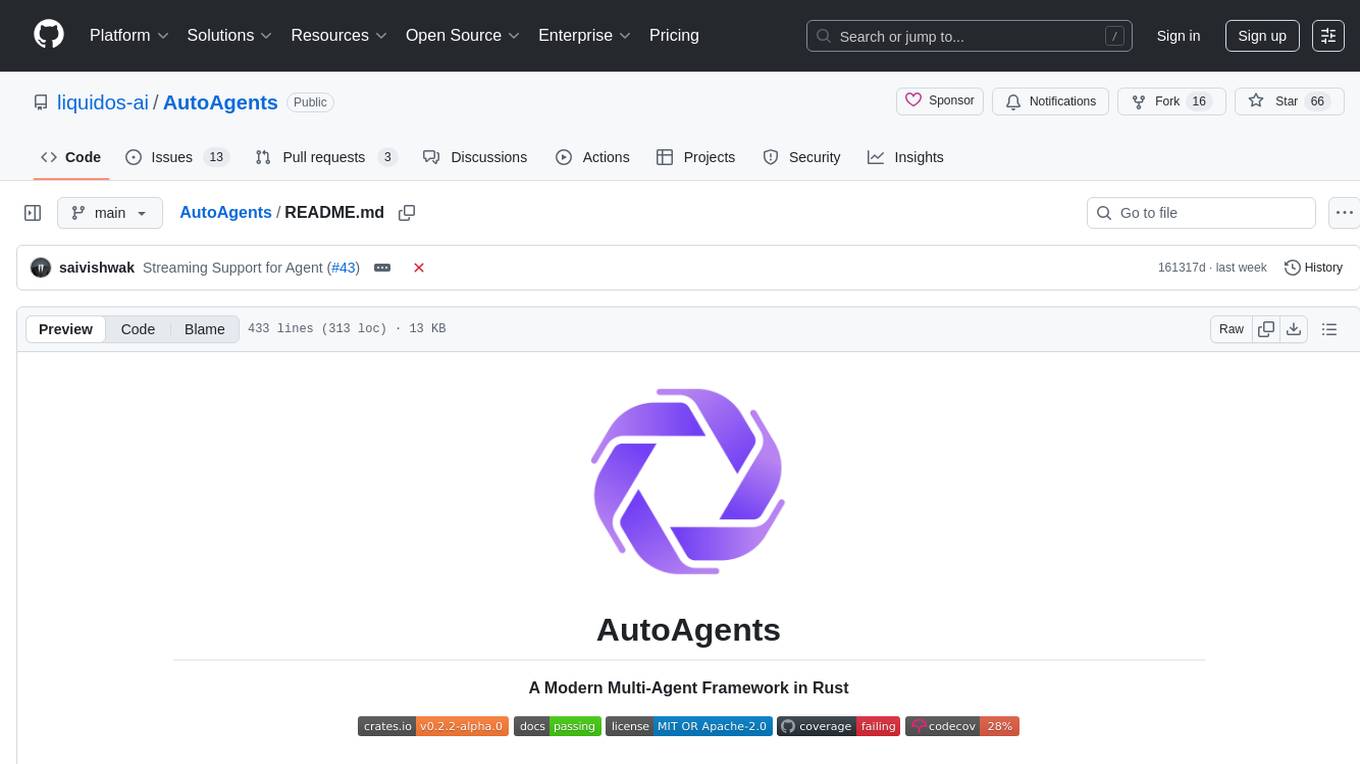
AutoAgents
AutoAgents is a cutting-edge multi-agent framework built in Rust that enables the creation of intelligent, autonomous agents powered by Large Language Models (LLMs) and Ractor. Designed for performance, safety, and scalability. AutoAgents provides a robust foundation for building complex AI systems that can reason, act, and collaborate. With AutoAgents you can create Cloud Native Agents, Edge Native Agents and Hybrid Models as well. It is so extensible that other ML Models can be used to create complex pipelines using Actor Framework.
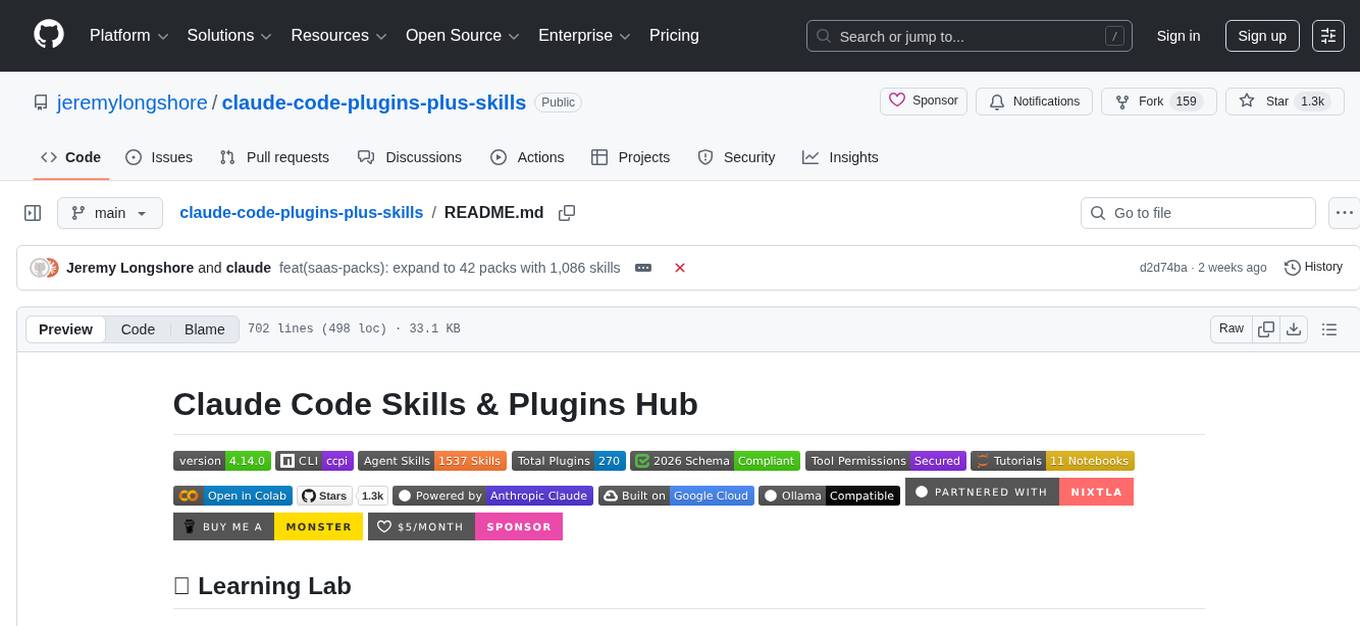
claude-code-plugins-plus-skills
Claude Code Skills & Plugins Hub is a comprehensive marketplace for agent skills and plugins, offering 1537 production-ready agent skills and 270 total plugins. It provides a learning lab with guides, diagrams, and examples for building production agent workflows. The package manager CLI allows users to discover, install, and manage plugins from their terminal, with features like searching, listing, installing, updating, and validating plugins. The marketplace is not on GitHub Marketplace and does not support built-in monetization. It is community-driven, actively maintained, and focuses on quality over quantity, aiming to be the definitive resource for Claude Code plugins.
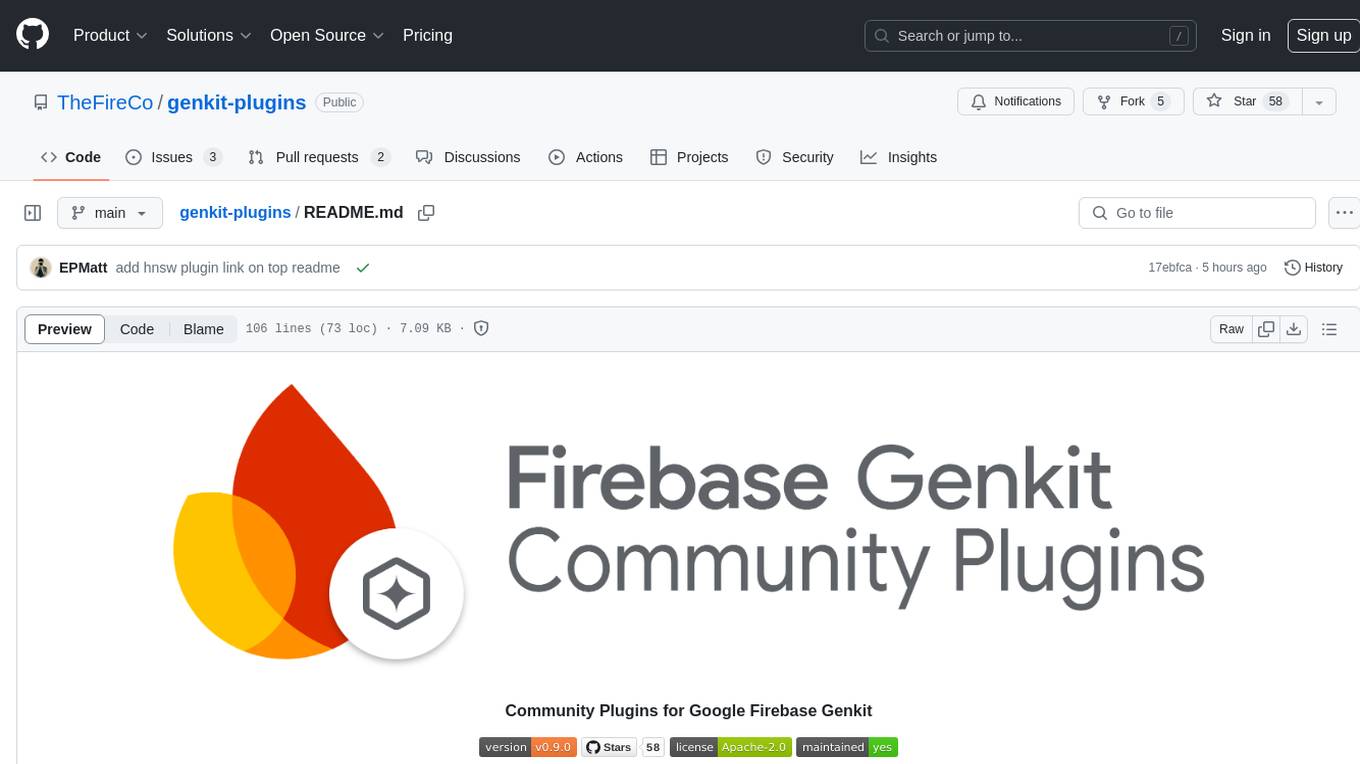
genkit-plugins
Community plugins repository for Google Firebase Genkit, containing various plugins for AI APIs and Vector Stores. Developed by The Fire Company, this repository offers plugins like genkitx-anthropic, genkitx-cohere, genkitx-groq, genkitx-mistral, genkitx-openai, genkitx-convex, and genkitx-hnsw. Users can easily install and use these plugins in their projects, with examples provided in the documentation. The repository also showcases products like Fireview and Giftit built using these plugins, and welcomes contributions from the community.
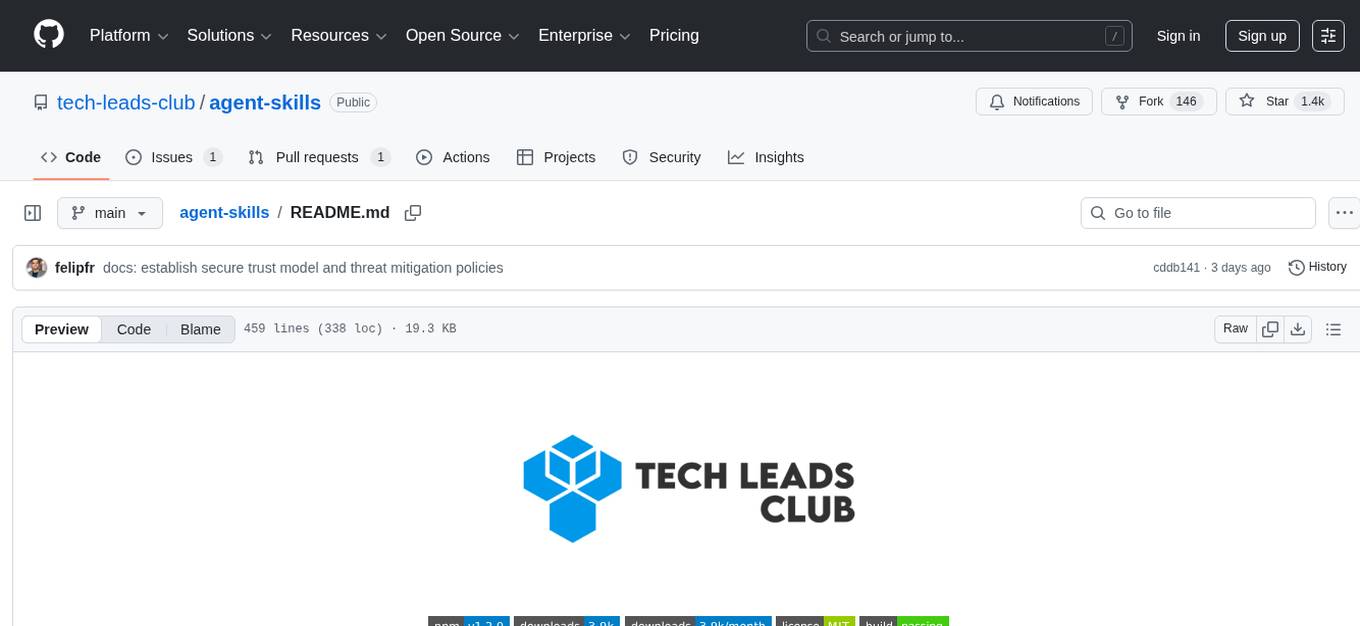
agent-skills
Agent Skills is a secure, validated skill registry for professional AI coding agents. It provides a library of verified, tested, and safe capabilities to extend various AI agents with confidence. The tool addresses security concerns in marketplace skills by offering 100% open-source code, static analysis for credential theft prevention, immutable integrity to prevent supply chain attacks, and human curation to ensure safety boundaries. Users can install skills through an interactive wizard, choose from a variety of supported AI coding agents, and benefit from a growing catalog of featured skills for development, cloud, automation, design, and security tasks.
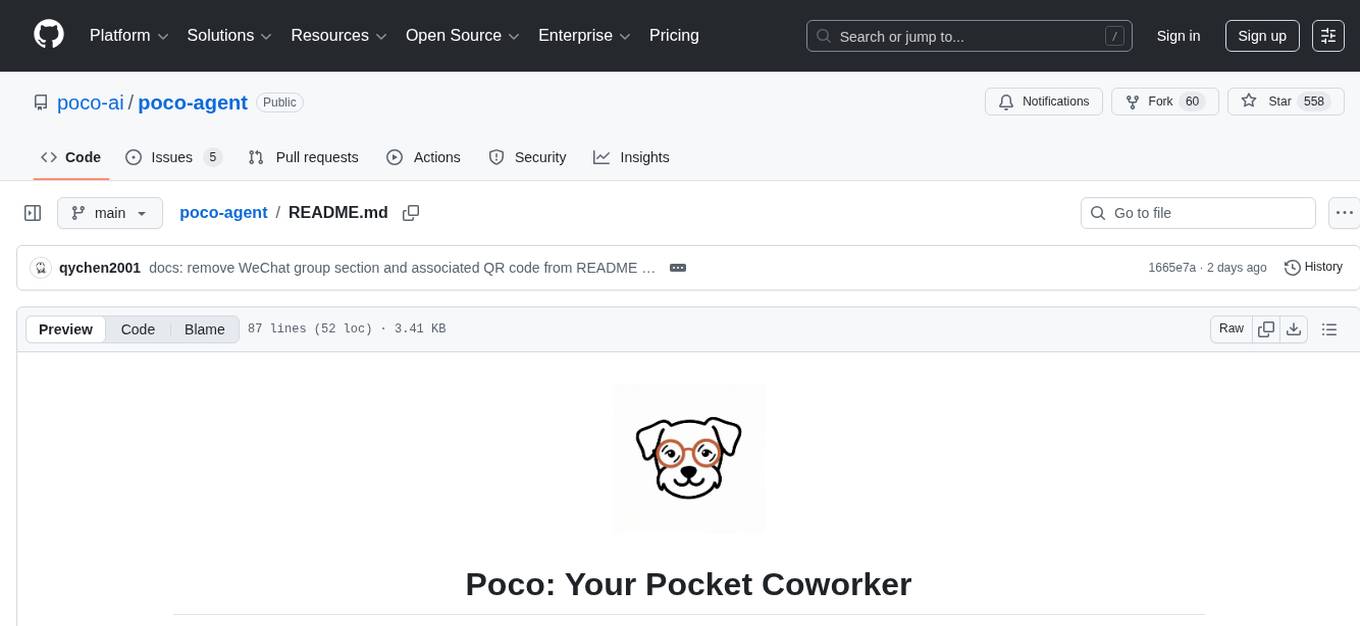
poco-agent
Poco Agent is a cloud-based tool that provides a secure sandbox environment for running tasks without affecting the host machine. It offers a modern UI with mobile adaptability, easy configuration through Docker, and extensive capabilities with support for MCP protocol and custom skills. Users can run tasks asynchronously and schedule them, even when the web interface is closed. Additional features include a built-in browser for internet research and GitHub repository integration. Poco Agent aims to be a more secure, visually appealing, and user-friendly alternative to OpenClaw.
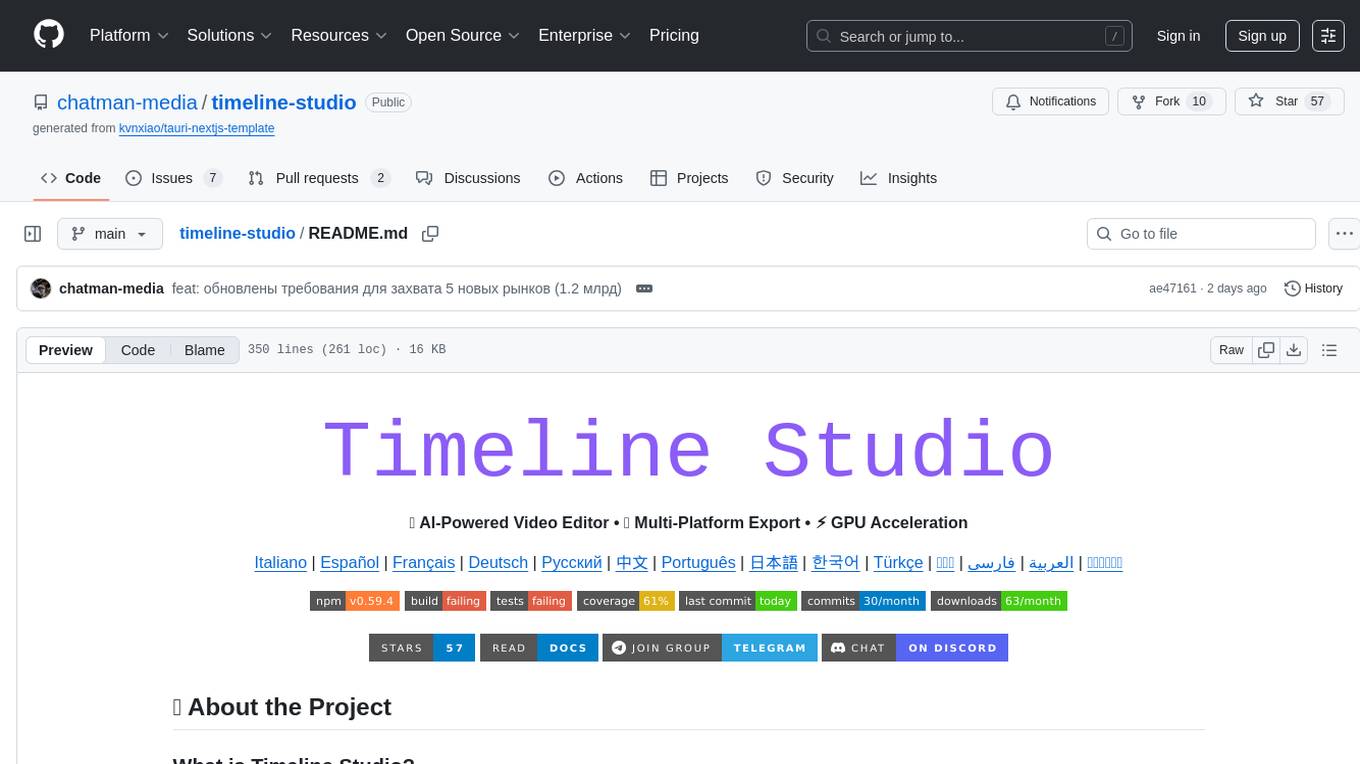
timeline-studio
Timeline Studio is a next-generation professional video editor with AI integration that automates content creation for social media. It combines the power of desktop applications with the convenience of web interfaces. With 257 AI tools, GPU acceleration, plugin system, multi-language interface, and local processing, Timeline Studio offers complete video production automation. Users can create videos for various social media platforms like TikTok, YouTube, Vimeo, Telegram, and Instagram with optimized versions. The tool saves time, understands trends, provides professional quality, and allows for easy feature extension through plugins. Timeline Studio is open source, transparent, and offers significant time savings and quality improvements for video editing tasks.
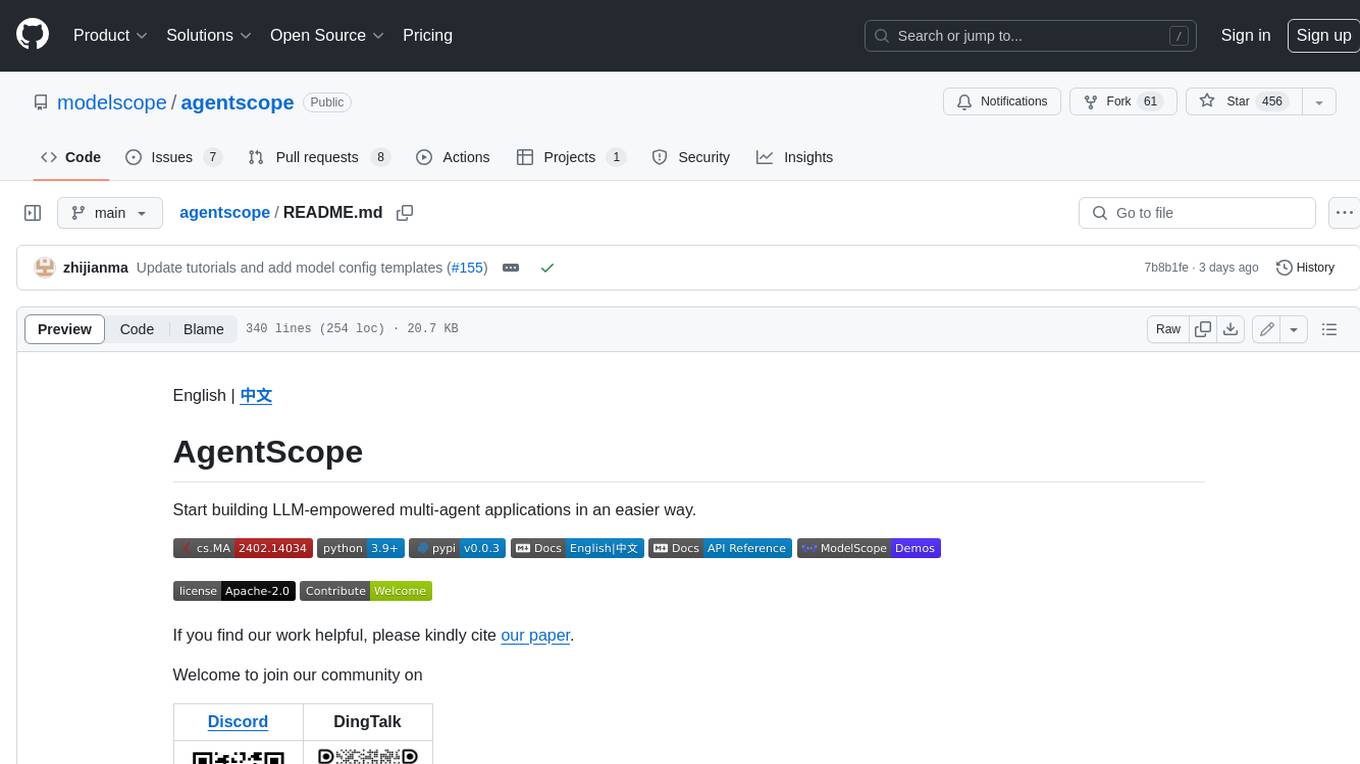
agentscope
AgentScope is a multi-agent platform designed to empower developers to build multi-agent applications with large-scale models. It features three high-level capabilities: Easy-to-Use, High Robustness, and Actor-Based Distribution. AgentScope provides a list of `ModelWrapper` to support both local model services and third-party model APIs, including OpenAI API, DashScope API, Gemini API, and ollama. It also enables developers to rapidly deploy local model services using libraries such as ollama (CPU inference), Flask + Transformers, Flask + ModelScope, FastChat, and vllm. AgentScope supports various services, including Web Search, Data Query, Retrieval, Code Execution, File Operation, and Text Processing. Example applications include Conversation, Game, and Distribution. AgentScope is released under Apache License 2.0 and welcomes contributions.
For similar tasks

Awesome-Lists
Awesome-Lists is a curated list of awesome lists across various domains of computer science and beyond, including programming languages, web development, data science, and more. It provides a comprehensive index of articles, books, courses, open source projects, and other resources. The lists are organized by topic and subtopic, making it easy to find the information you need. Awesome-Lists is a valuable resource for anyone looking to learn more about a particular topic or to stay up-to-date on the latest developments in the field.
For similar jobs

weave
Weave is a toolkit for developing Generative AI applications, built by Weights & Biases. With Weave, you can log and debug language model inputs, outputs, and traces; build rigorous, apples-to-apples evaluations for language model use cases; and organize all the information generated across the LLM workflow, from experimentation to evaluations to production. Weave aims to bring rigor, best-practices, and composability to the inherently experimental process of developing Generative AI software, without introducing cognitive overhead.

agentcloud
AgentCloud is an open-source platform that enables companies to build and deploy private LLM chat apps, empowering teams to securely interact with their data. It comprises three main components: Agent Backend, Webapp, and Vector Proxy. To run this project locally, clone the repository, install Docker, and start the services. The project is licensed under the GNU Affero General Public License, version 3 only. Contributions and feedback are welcome from the community.

oss-fuzz-gen
This framework generates fuzz targets for real-world `C`/`C++` projects with various Large Language Models (LLM) and benchmarks them via the `OSS-Fuzz` platform. It manages to successfully leverage LLMs to generate valid fuzz targets (which generate non-zero coverage increase) for 160 C/C++ projects. The maximum line coverage increase is 29% from the existing human-written targets.

LLMStack
LLMStack is a no-code platform for building generative AI agents, workflows, and chatbots. It allows users to connect their own data, internal tools, and GPT-powered models without any coding experience. LLMStack can be deployed to the cloud or on-premise and can be accessed via HTTP API or triggered from Slack or Discord.

VisionCraft
The VisionCraft API is a free API for using over 100 different AI models. From images to sound.

kaito
Kaito is an operator that automates the AI/ML inference model deployment in a Kubernetes cluster. It manages large model files using container images, avoids tuning deployment parameters to fit GPU hardware by providing preset configurations, auto-provisions GPU nodes based on model requirements, and hosts large model images in the public Microsoft Container Registry (MCR) if the license allows. Using Kaito, the workflow of onboarding large AI inference models in Kubernetes is largely simplified.

PyRIT
PyRIT is an open access automation framework designed to empower security professionals and ML engineers to red team foundation models and their applications. It automates AI Red Teaming tasks to allow operators to focus on more complicated and time-consuming tasks and can also identify security harms such as misuse (e.g., malware generation, jailbreaking), and privacy harms (e.g., identity theft). The goal is to allow researchers to have a baseline of how well their model and entire inference pipeline is doing against different harm categories and to be able to compare that baseline to future iterations of their model. This allows them to have empirical data on how well their model is doing today, and detect any degradation of performance based on future improvements.

Azure-Analytics-and-AI-Engagement
The Azure-Analytics-and-AI-Engagement repository provides packaged Industry Scenario DREAM Demos with ARM templates (Containing a demo web application, Power BI reports, Synapse resources, AML Notebooks etc.) that can be deployed in a customer’s subscription using the CAPE tool within a matter of few hours. Partners can also deploy DREAM Demos in their own subscriptions using DPoC.





